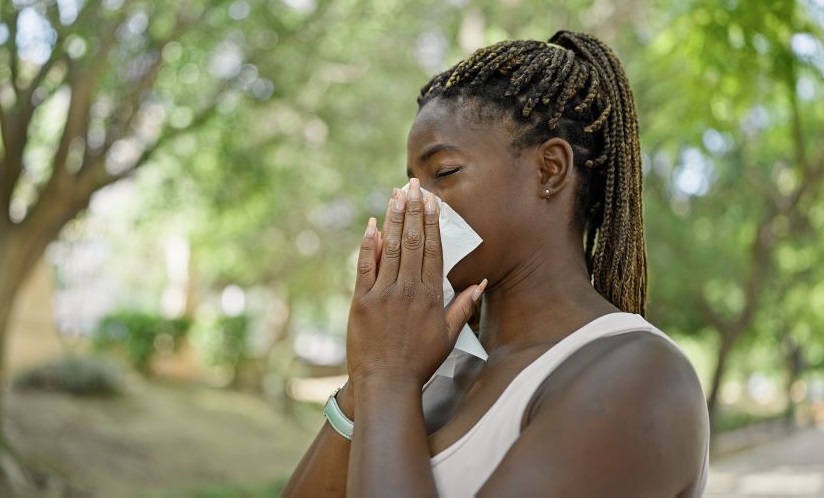Pollen-Related Asthma More Likely to Land Black Patients in the Hospital, Study Finds

By Martha Nolan
Atlanta’s already brutal pollen seasons may be getting worse, thanks to climate change.
Evidence suggests the season is starting earlier, lasting longer, and growing more intense. Researchers at the Rollins School of Public Health conducted a time-series epidemiological study to see how the relationship between pollen and asthma has changed over time.
The researchers looked at pollen data and emergency department (ED) visits for asthma and wheeze over a 26-year period in metropolitan Atlanta. Their findings were not what they expected.
“The absolute number of ED visits related to asthma has increased over time, but the risk of going to the ED because of pollen exposure has not,” says Noah Scovronick, assistant professor of environmental health. “That was counter to what we expected.”
Scovronick admits he is not certain why the risk of asthma-related ED visits has not increased over time, but he speculates it may be due to improvements in treatments for allergic asthma.
“With the improvements in asthma treatments, it’s likely that more people are able to control their allergic asthma and avoid making a trip to the ED,” he says.
The study did document disparities in the effect of pollen on asthma by race.
“For several of the pollen species we looked at, Black patients were around twice as likely to go to the ED for allergic asthma as their White counterparts,” says Brooke Lappe, an environmental health doctoral student and first author of the study. “We found that to be true throughout the study period.”
Again, the research team can provide only speculation on the reasons. Black patients may face a higher exposure to pollen due to where they live, or differences in access to air conditioning or air filtration or may rely more heavily on walking or public transportation to get around.
“There is only one monitoring station in Atlanta that measures pollen, so everyone is assigned the same pollen exposure each day, regardless of where in the city they live,” says Scovronick.
Racial disparities in the quality of asthma treatment, which Lappe says have been well documented in Atlanta and elsewhere, could be another reason for the increased ED visits for Black patients.
“The racial disparities in the risk of pollen-related ED asthma visits—which is something that has not been looked at extensively before—was evident throughout the 26-year study period,” she says.


